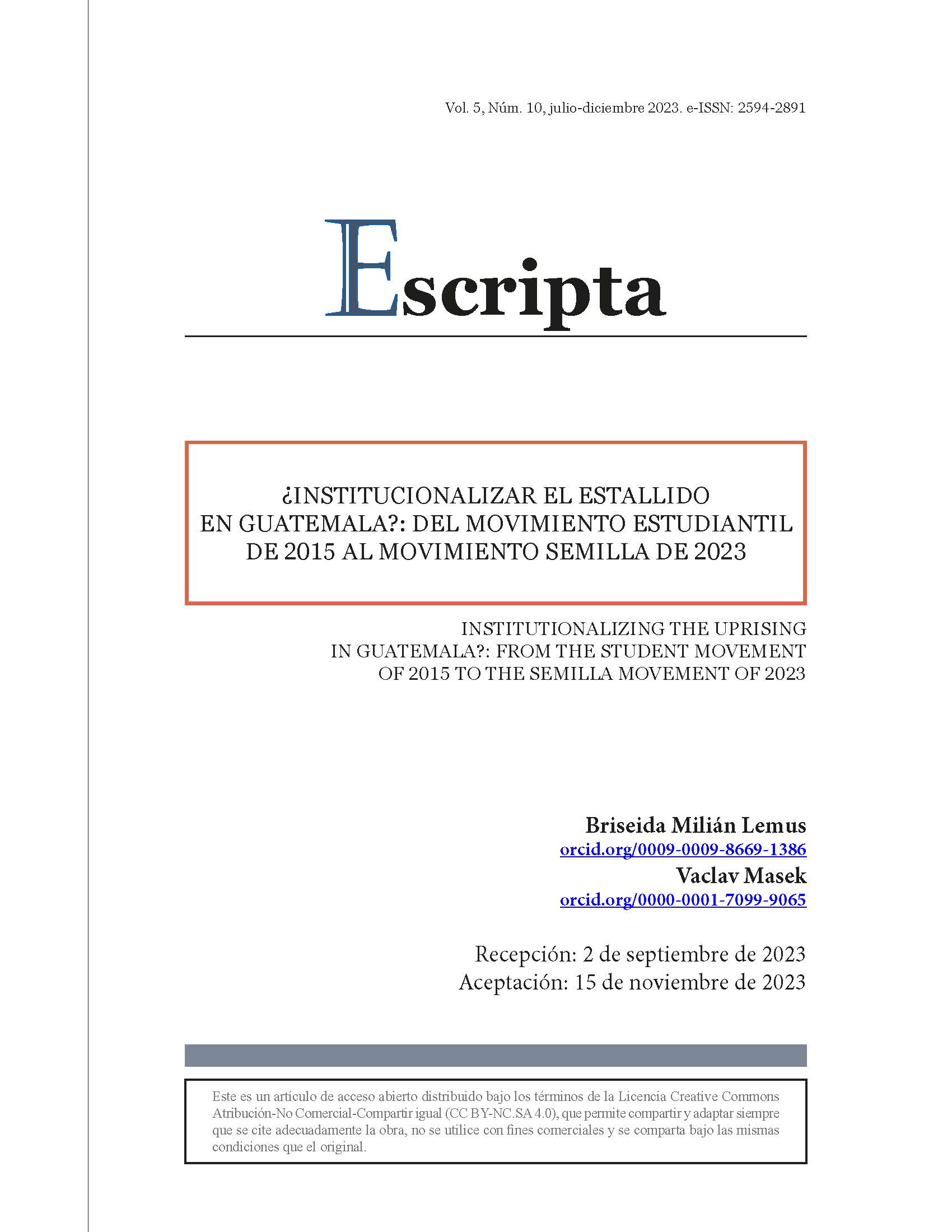¿Institutionalizing the uprising in Guatemala?: from the Student Movement of 2015 to the Semilla Movement of 2023
Keywords:
social movements, democratization, Guatemala, political violence, political partiesAbstract
The historic victory of the Movimiento Semilla in the 2023 Guatemalan elections marks a noteworthy moment in the most populous democracy in Central America. This political achievement emerged as a response to the repressive tactics employed by political elites who wielded control over post-conflict state institutions. The party originated from a collective political analysis and discourse in 2014, gaining considerable traction during the widespread anti-corruption movements from April to September 2015. Over the years, its constitution underwent significant changes, evolving into an organizational space that facilitated the integration of individuals from disparate spheres that had been disrupted by repression. Examination of archival materials and recent interviews with leaders from the student movements, which greatly fueled the citizen mobilizations eight years ago, elucidate how the anti-corruption demands found avenues for expression and implementation within a political party boasting a programmatic agenda. Characterizing the institutionalization of the 2015 outburst through the Seed Movement necessitates an analysis of the context of de-democratization in Guatemala, wherein civil society has endured a substantial loss of organizing spaces.
Downloads

Downloads
Published
Issue
Section
Categories
License
Copyright (c) 2024 ESCRIPTA

This work is licensed under a Creative Commons Attribution-NoDerivatives 4.0 International License.

